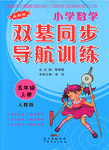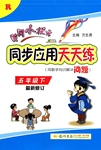题目内容
Every Christmas the giant tree in Rockefeller Center sparkles with thousands of lights. From the beginning, when construction workers raised the first one during the depths of the Depression, it has been a symbol of hope. Diana Abad, like most Americans, loved that tree.
In 1999, however, Diana was writing her will. The 33-year-old woman from Staten Island, New York, was diagnosed with leukemia(白血病)and wanted to put her things in order. Doctors told her she had nine months to live.
Her slim chance for survival lay in finding a bone marrow(骨髓)donor. The most likely source for a match is always among relatives -- but her family was tested and there was none.
Then one day in February 2000, she got a call from the hospital saying that out of the four million people enrolled in the National Marrow Donor Program Registry, there was only one match. The potential donor was thinking about it. In March the donor agreed, and the transplant procedure was scheduled for March 27.
On that day, a doctor came in with the marrow in a bag, and Diana remembers him saying: “This is it. If it doesn’t graft within four to six hours, nothing will bring you back.” Diana asked a priest (牧师)to give her last rite(祈祷).
Almost immediately after the two-hour procedure, she felt stronger. Doctors told her it looked like the graft had taken.
Donors are anonymous, but when she was better, Diana sent a note through the Registry: “You don’t know the joy that I am experiencing,” she wrote. “I hope that one day we can meet and I can thank you in person.”
It was several months before the donor replied. At first he didn’t even give his name. He was 34-year-old David Mason, and he lived in Dedham, Massachusetts. But eventually the two exchanged phone numbers and began to talk.
Then unexpectedly and unannounced, he turned up at her door in Englishtown, New Jersey, on December 23. She says it was love at first sight. He says he didn’t feel it until they met the second time.
That meeting began a long-distance romance that culminated(修成正果)under the Christmas tree in Rockefeller Center in December 2004. That’s where David proposed(求婚)to Diana. She, of course, said yes.
1.Which of the following may be the title of the passage?
A.Perfect Match B.Successful Graft
C.Anonymous Donor D.Lucky Christmas Tree
2.What can we know about the Christmas tree in Rockefeller Center?
A.It was planted by the local inhabitants of Rockefeller in the United States.
B.Diana got saved under the Christmas tree and so loved it.
C.Many Americans love the tree because it was raised during the depths of the depression.
D.The tree is very tall and beautifully decorated by people at Christmas time.
3.Which word can replace the underlined work enrolled in the fourth paragraph?
A.searched B.found C.registered D.served
4.It can be inferred from the passage that .
A.leukemia is so serious a disease that nobody can survive in America
B.patients who suffer from leukemia may feel very weak
C.bone marrow transplant is very easy to carry out in America
D.the man donor knew Diana would become his wife in advance
5.Which of the following is true about their first meeting with each other?
A.Diana met David at the hospital on the day when she was operated on.
B.Diana went to David’s home in Dedham in order to thank him in person.
C.David and Diana fell in love with each other when they first met.
D.David didn’t telephone Diana to inform her of the date of his visiting her.
ADCBD

 双基同步导航训练系列答案
双基同步导航训练系列答案 黄冈小状元同步计算天天练系列答案
黄冈小状元同步计算天天练系列答案Every year, as Spring Festival draws near, most Chinese people will get excited to make preparation for the most important festival and make plan for the winter break. It is a little like Christmas in the United States, but there are some differences between the two festivals.
Both the major Chinese and the major Western holidays come during the cold season, and special food is expected. In western countries, cookies and cakes begin just after Thanksgiving in November and show up everywhere. Turkey, potatoes and other food come later. Similar thing happens in China. Entering lunar December, most families will make shopping plans for the coming big day and food is certainly one of the most important things to be considered. At the end of the month, both parents in each family will be very busy---the father is busy buying food while the mother is busy cooking.
A deeper similarity (相似处) is tradition. Christmas, as the letters “Christ” suggests, began as a holiday to celebrate the birthday of Jesus Christ. Many people pray (祈祷) on this day. In China, people living in cities or towns, though they don’t plan to sow seeds(播种) this month, still celebrate on the big day for farmers.
Followers of both holidays are also different from each other. While Chinese people travel to the homes of elder relatives, Americans usually call or send cards. Westerners prefer Christmas carols to fireworks. In Christmas, many family gifts come together instead of one by one, since adults may have only one day free to celebrate.
But the most curious difference is about students. Chinese students going home for Spring Festival sometimes report that they get bored by the end of vacation, yet American students seldom get bored around Christmas and western New Year.
Not everyone enjoys classic holiday traditions. Students in western countries may get upset, as too much homework, travel or bad family relations may destroy the short holiday season. In China, more and more college students choose to travel or work during the winter holiday instead of going home to stay with their families. It’s against the tradition but many people accept it.
【小题1】What does “the coming big day” (Paragraph 2) refer to?
| A.Christmas | B.Thanksgiving Day |
| C.the New Year’s Day | D.the Spring Festival |
| A.the similarities between Christmas and the Spring Festival |
| B.the differences between Christmas and the Spring Festival |
| C.the preparations for Christmas and the Spring Festival |
| D.the history of Christmas and the Spring Festival |
| A.Food in different festivals. |
| B.Differences between two festivals. |
| C.Festivals in China and western countries. |
| D.Traditional celebrations in different countries. |